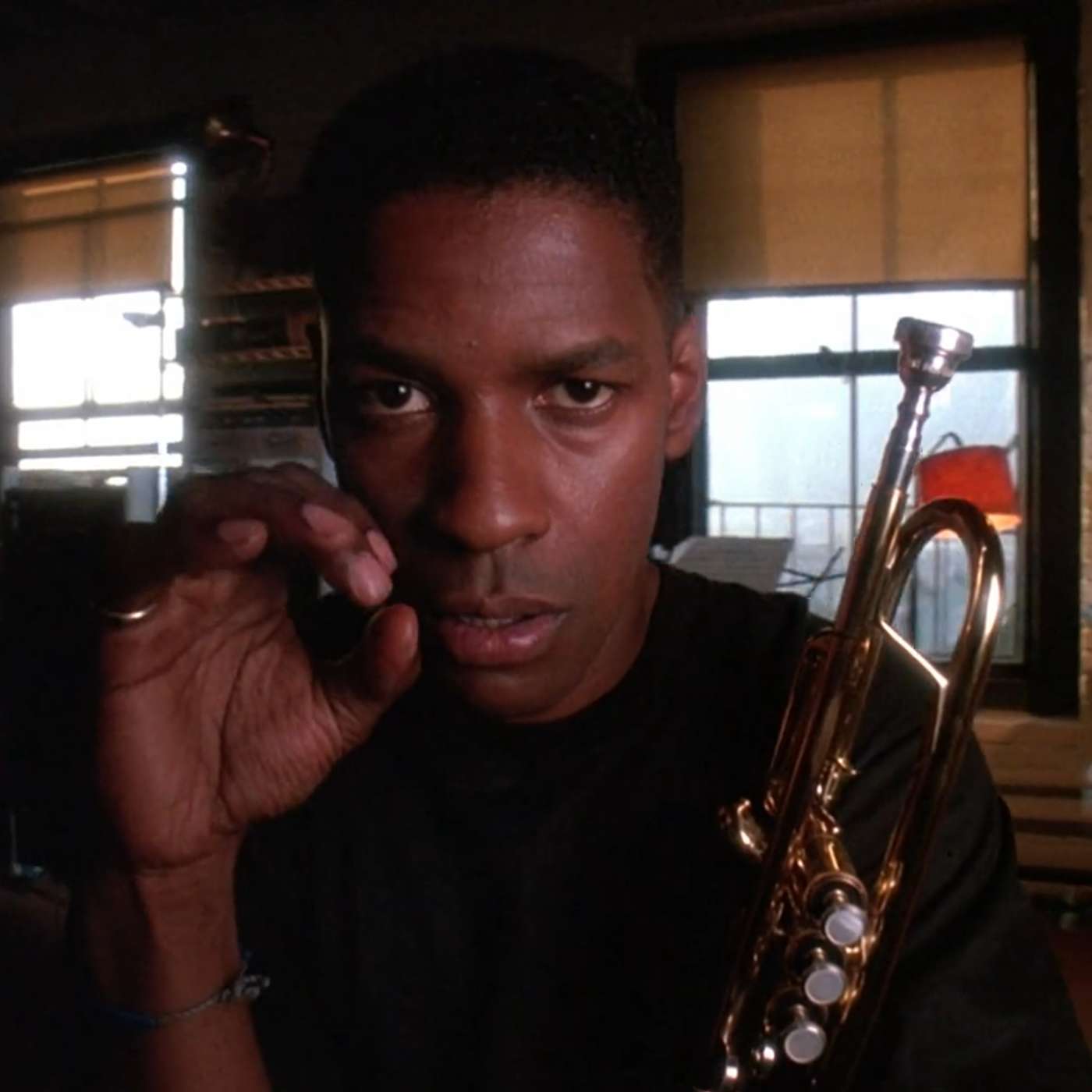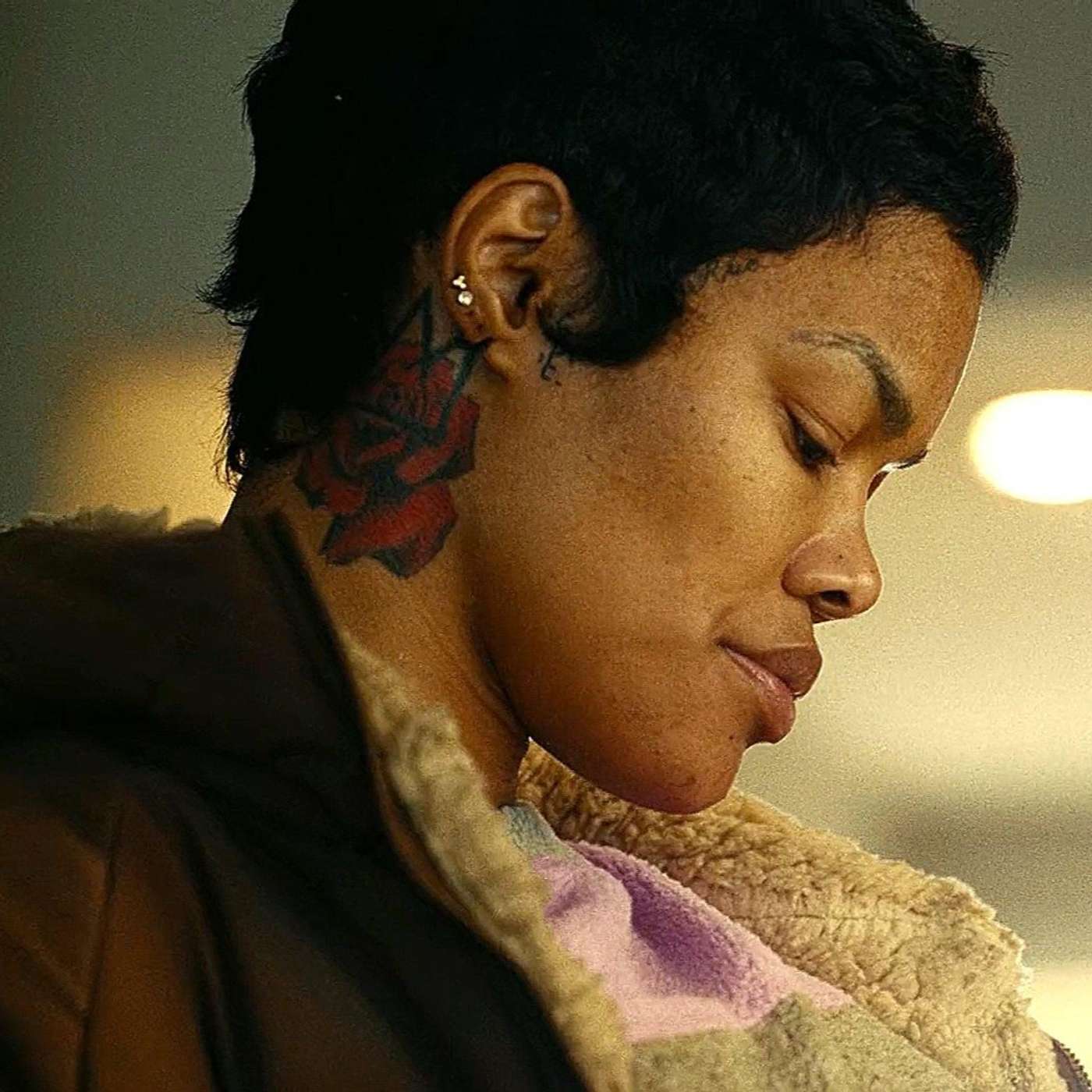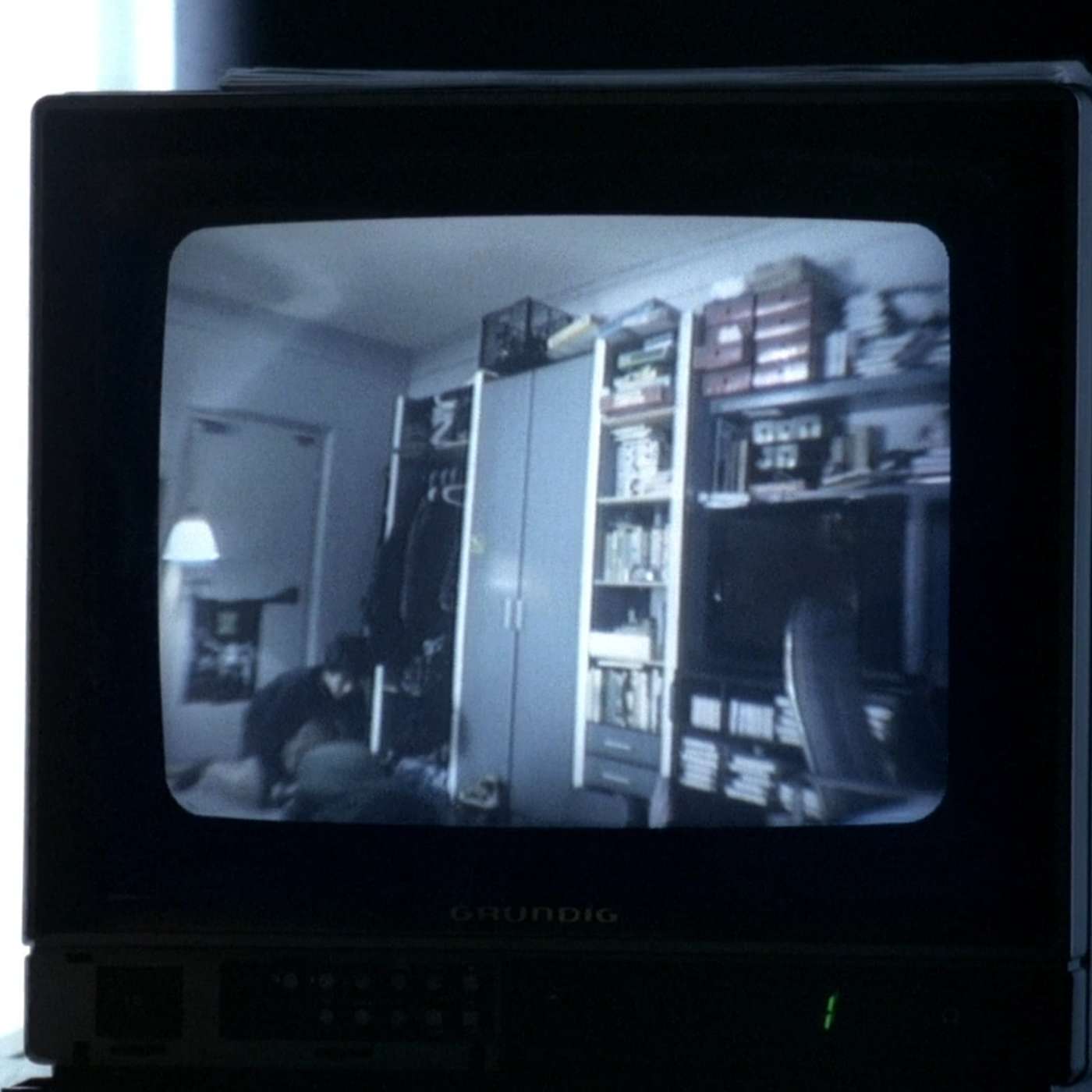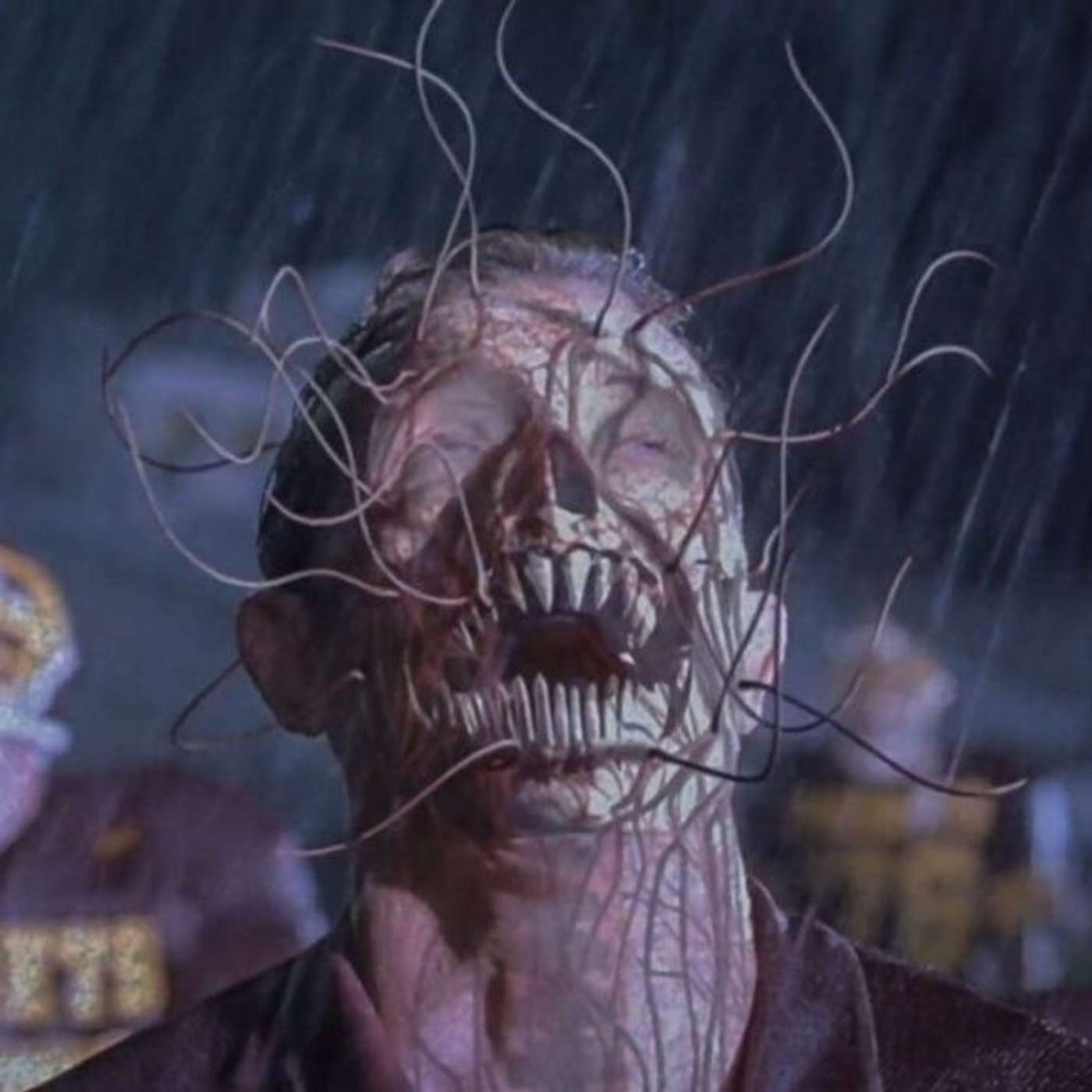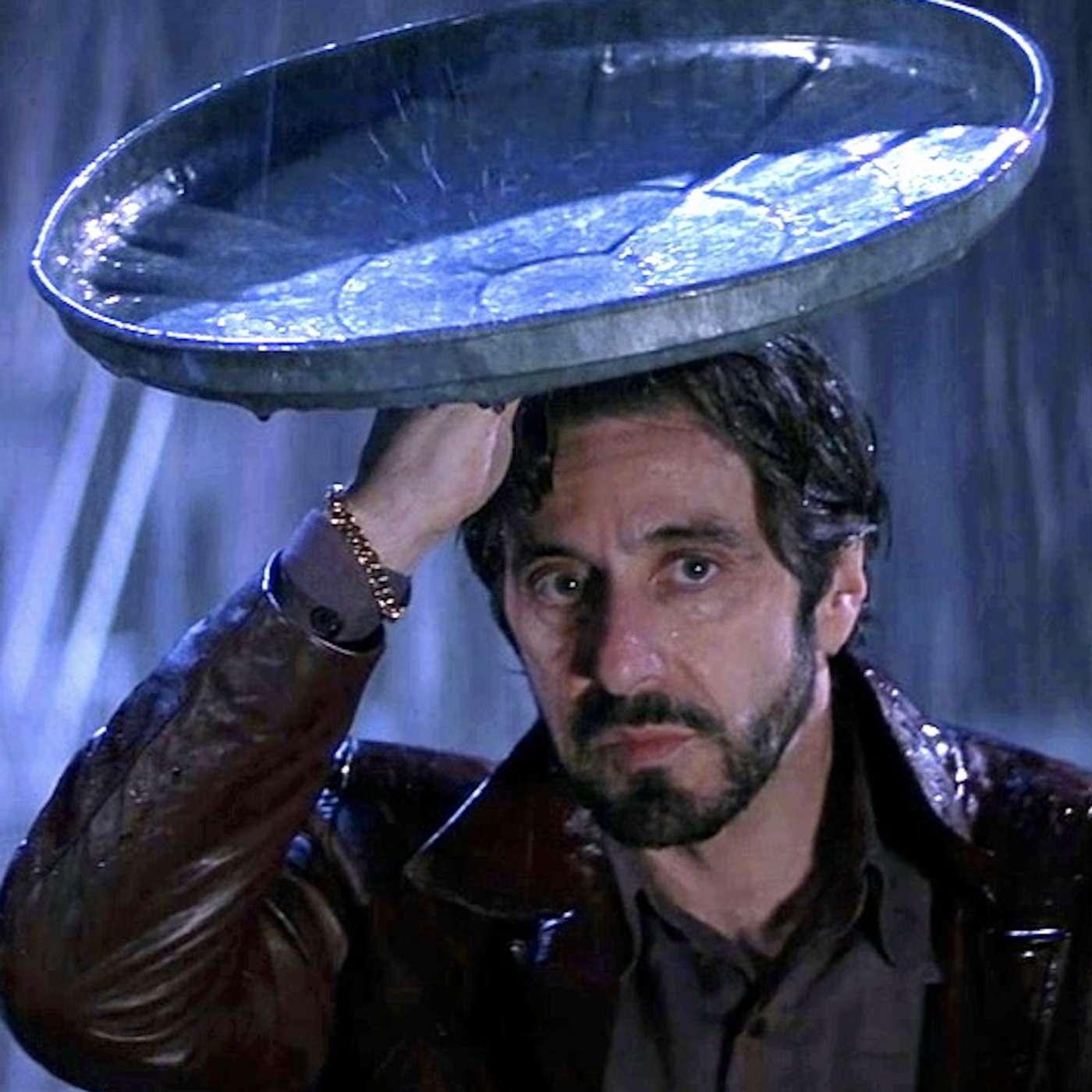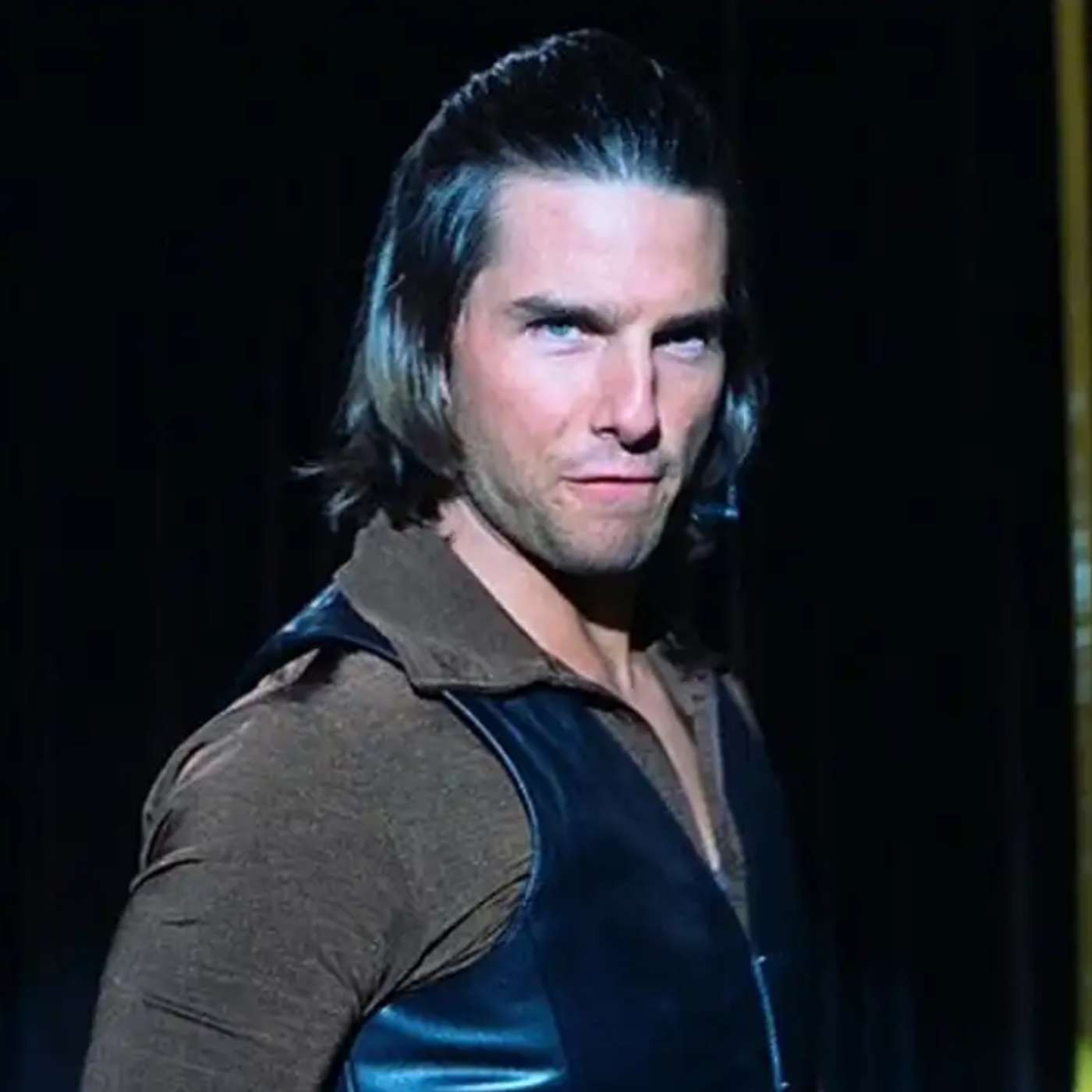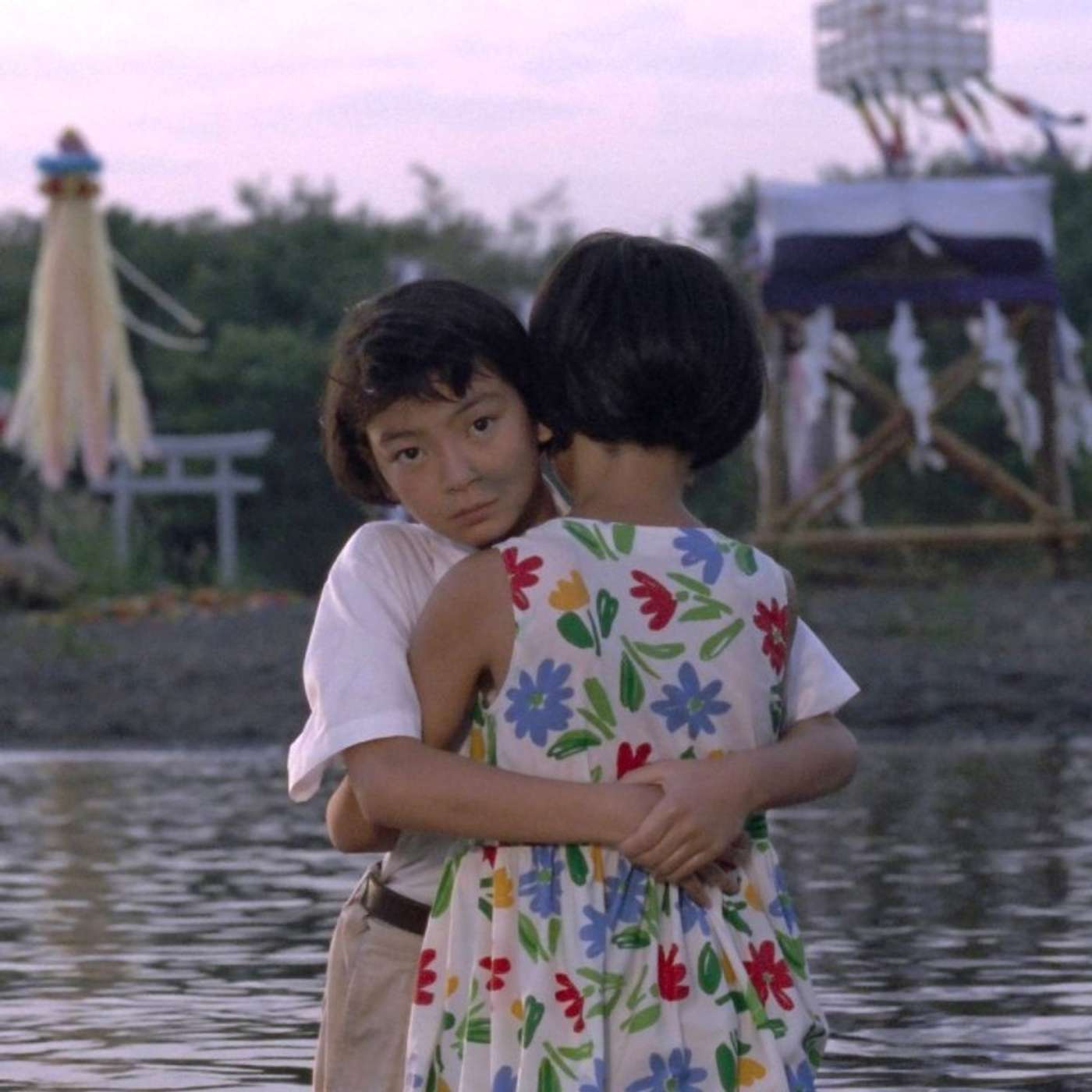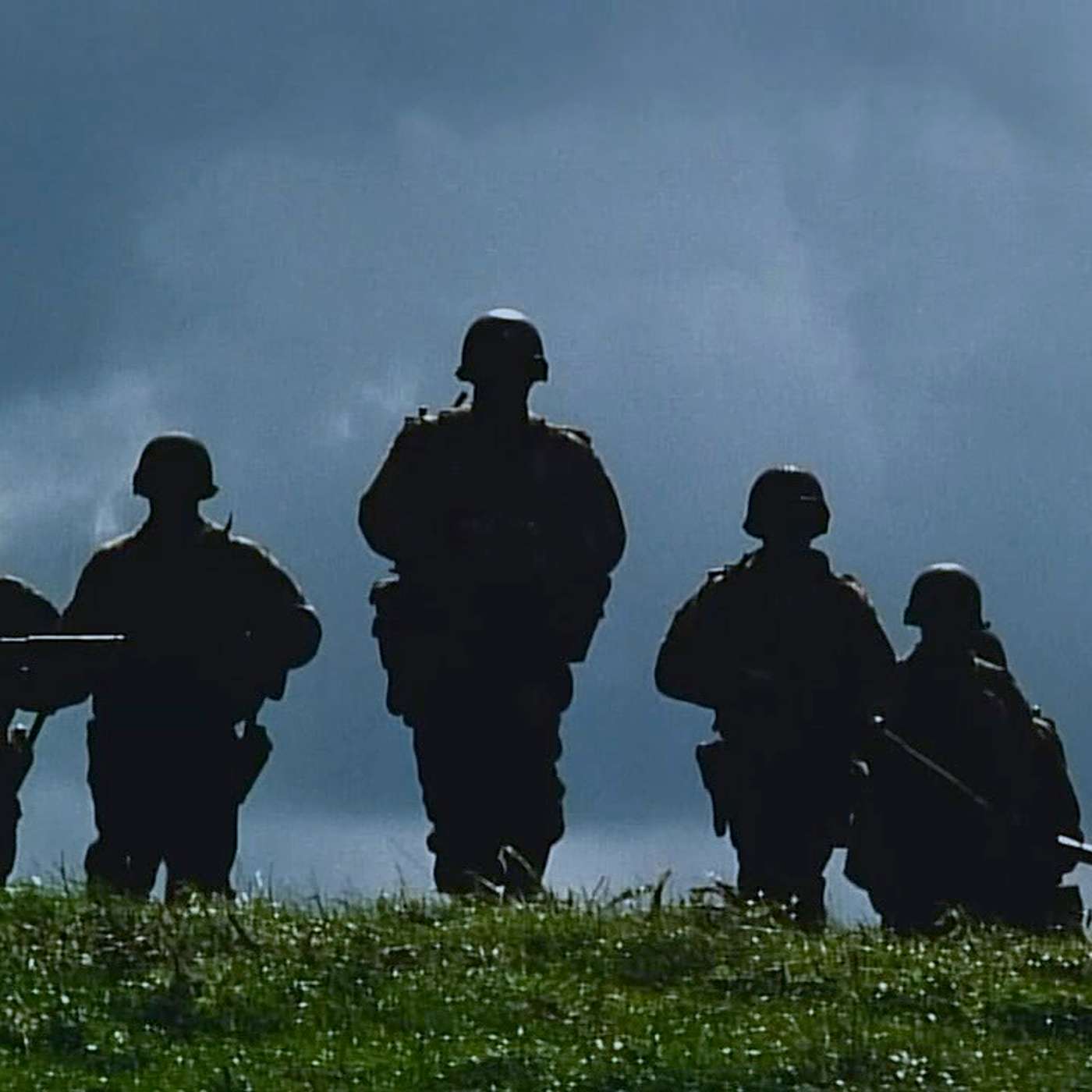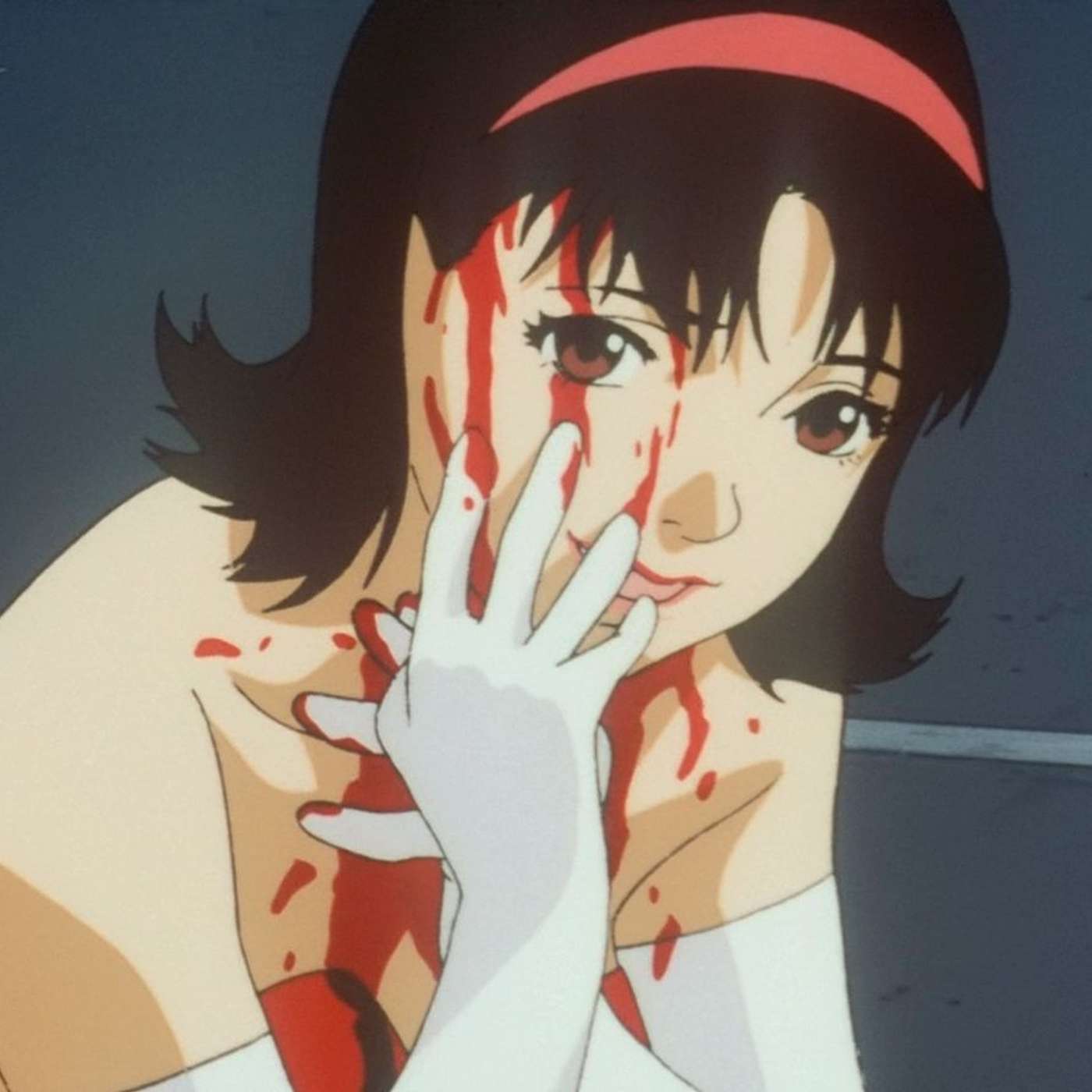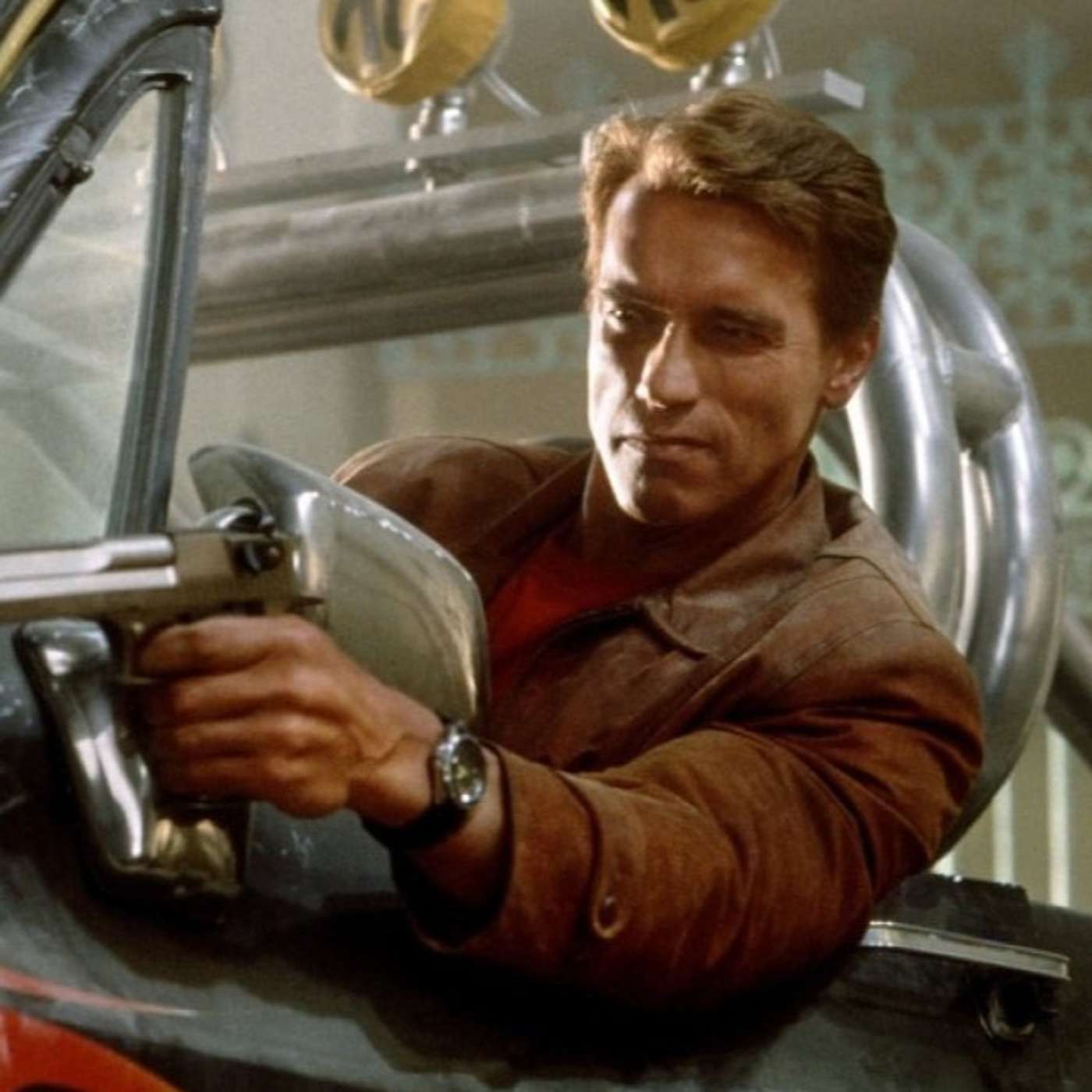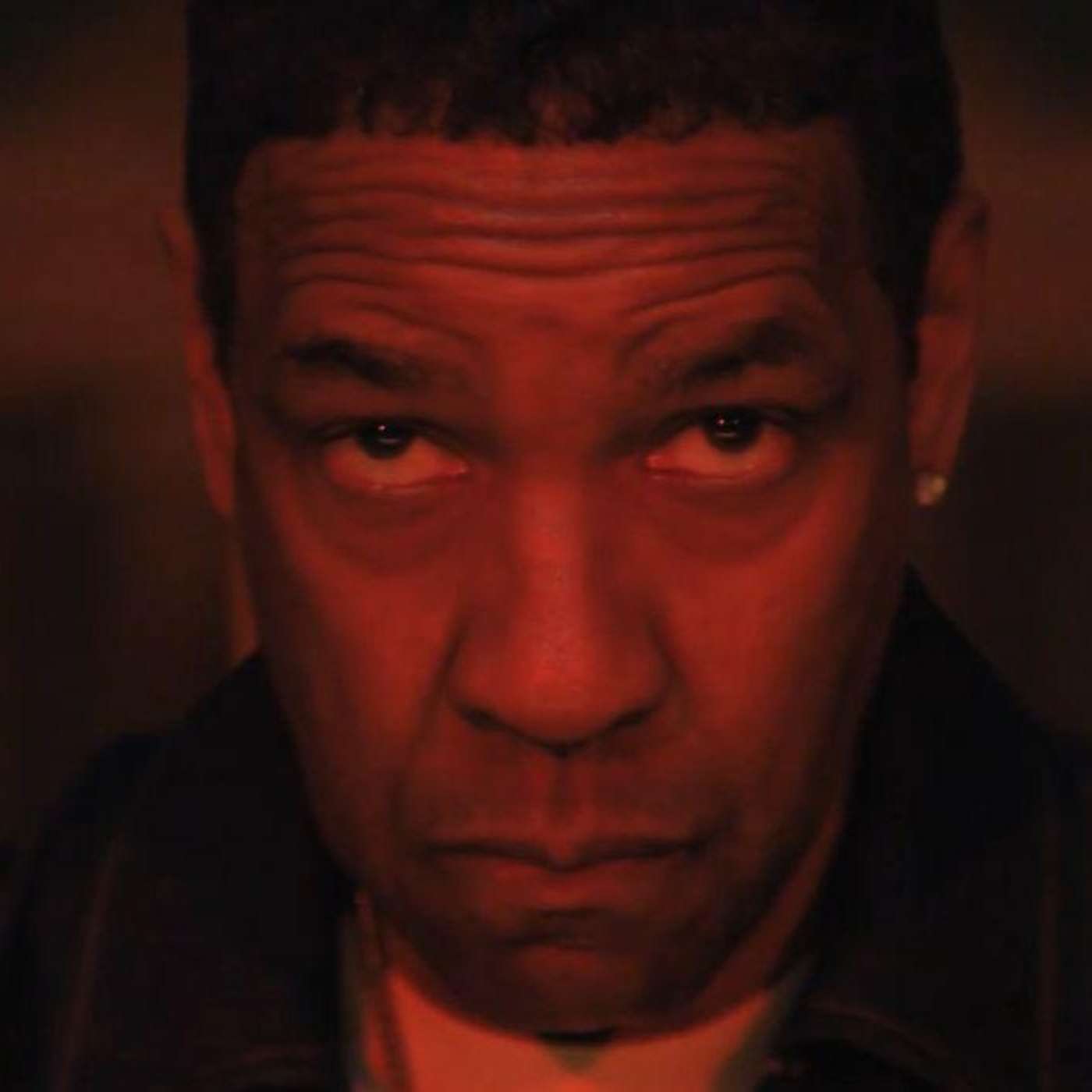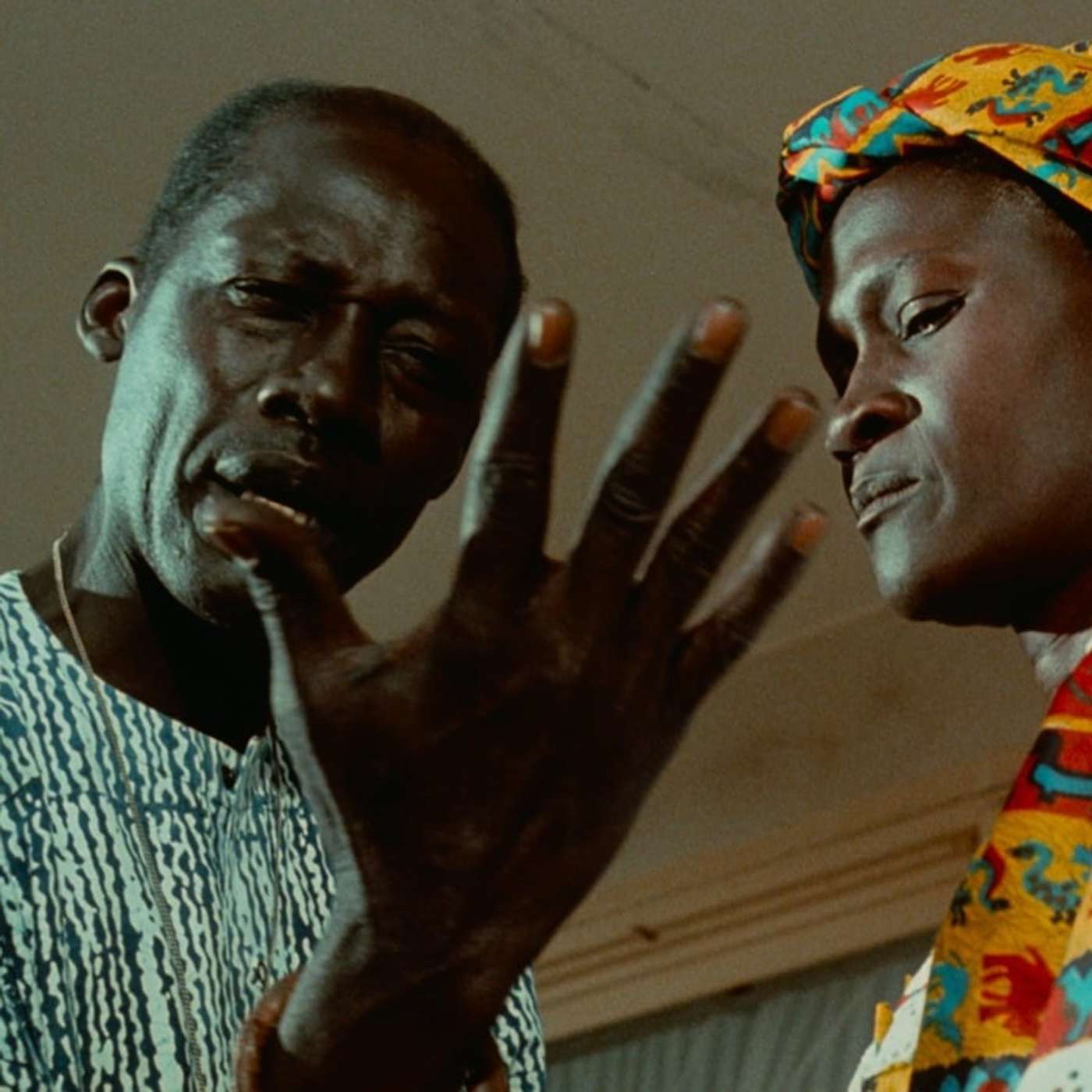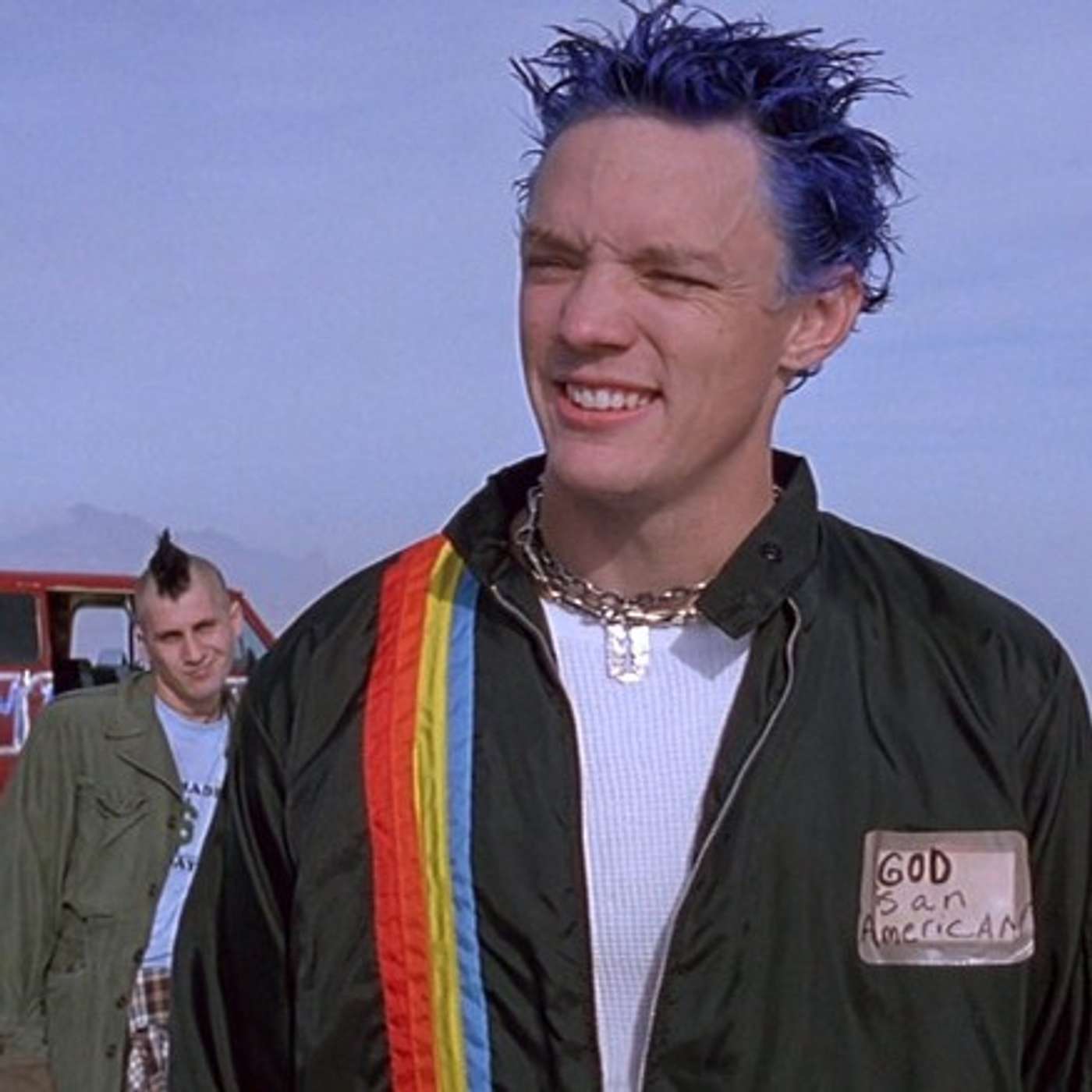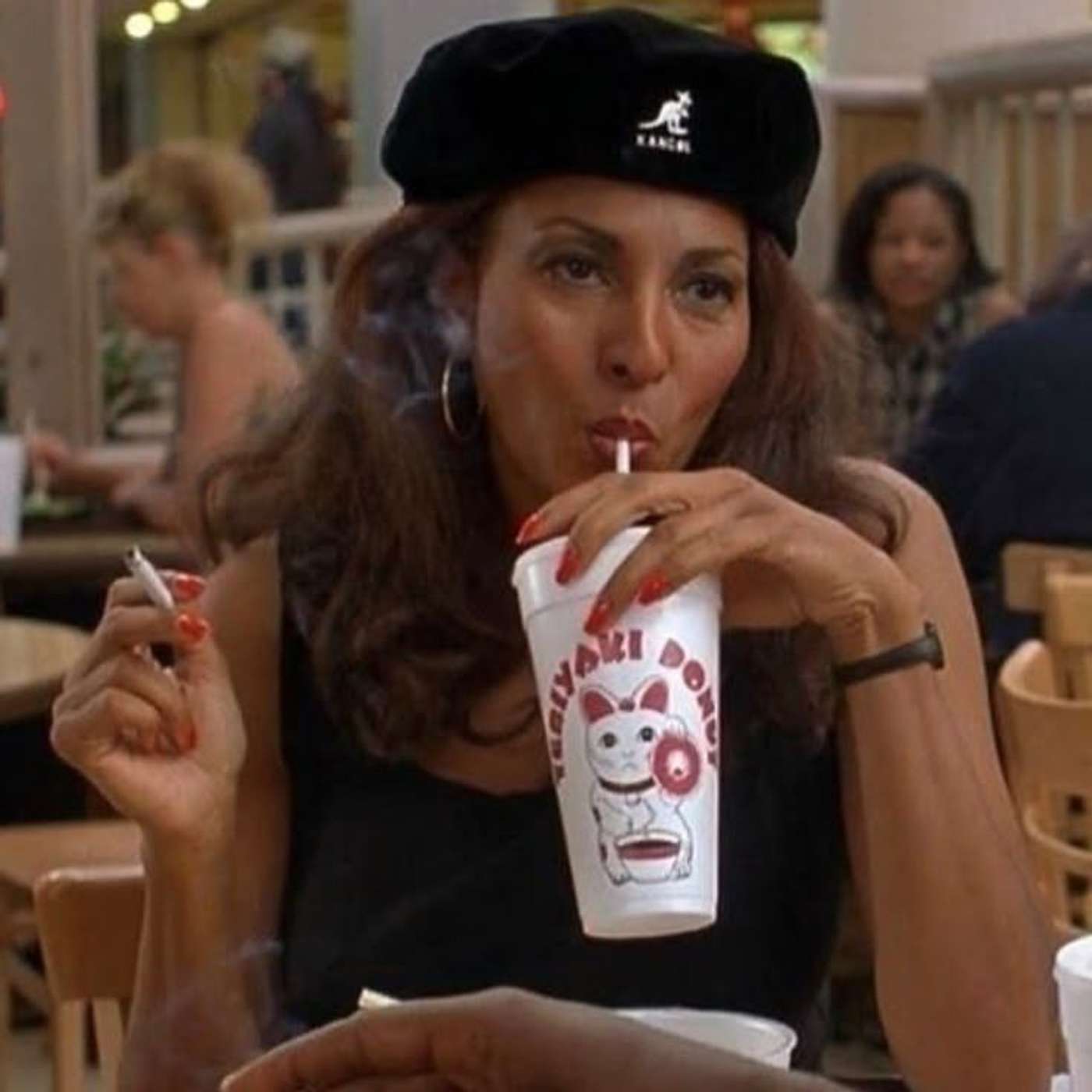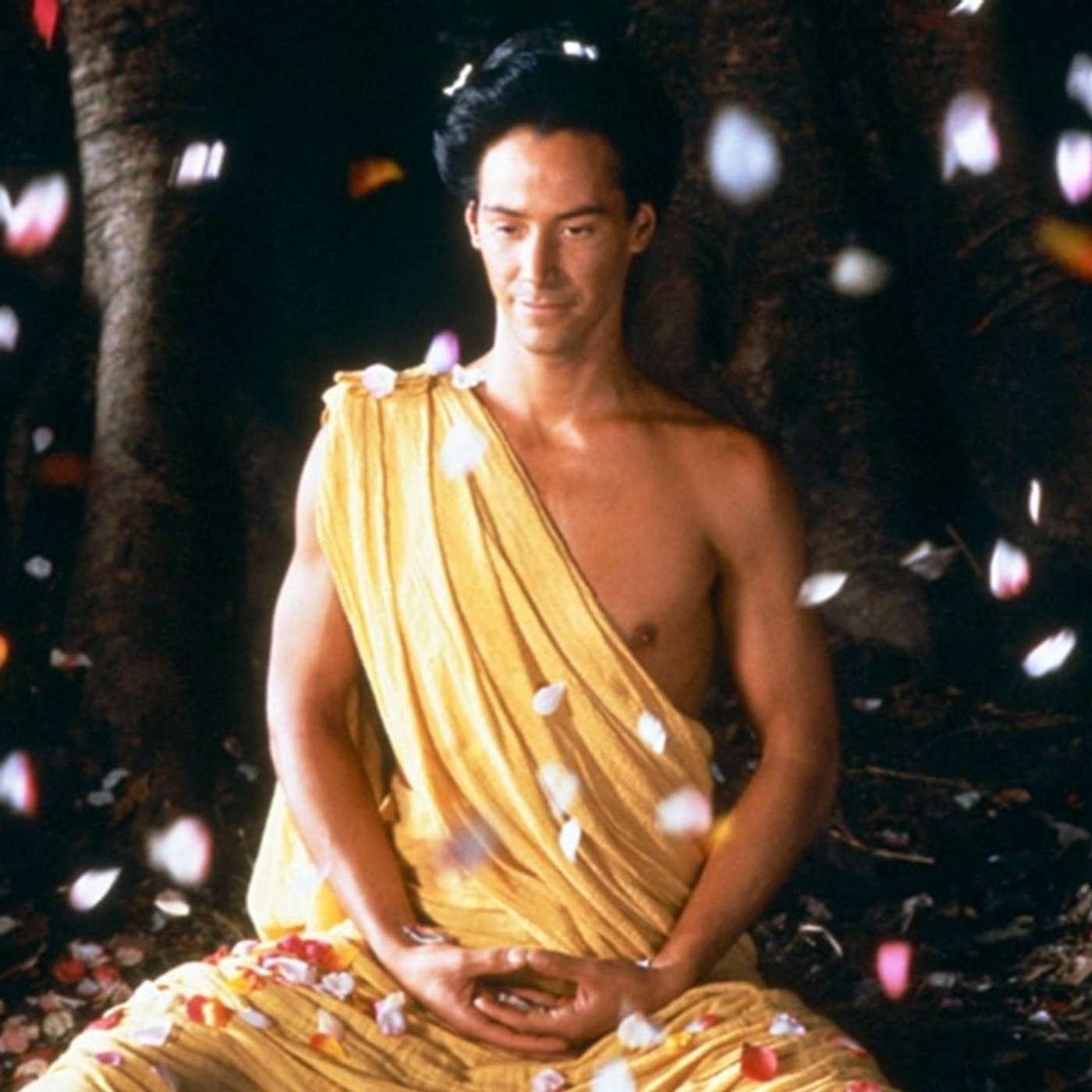Discover Hit Factory
Hit Factory

259 Episodes
Reverse
It's the most wonderful time of the year! Denzember 2 kicks off with a conversation about Spike Lee and Denzel Washington's first collaboration, 1990's Mo' Better Blues, a film about jazz, art-making, and the pursuit of greatness at the expense of personal relationships. The terrific Minnie Zondi is our guest! We discuss the film's tepid reception upon release, and how a (predominantly white) critical audience failed to understand the political dimensions of a film about Black music and its commercial and social appropriation. Then, we reflect on Spike Lee's career and his brilliant cohort of collaborators, including composer Terence Blanchard (making his first appearance on a Spike Lee soundtrack), cinematographer Ernest R. Dickerson, and the electric stylings of costume designer Ruth E. Carter. Finally, we reflect on the movie's complicated ending, and what we're to make of its reflections on artistry, family, and whether exceptional talents can hold the two in balance. Follow Minnie Zondi on Twitter. Follow Minnie on Substack. Read Minnie's Twitter thread on Ruth E. Carter's costume work for Ryan Coogler's Sinners.Get access to the whole Denzember experience, all of our premium episodes and bonus content, and an invite to the Hit Factory Discord by becoming a Hit Factory Patron for just $5/month.....Our Denzember Theme Song is "Funk" by Oppo
Get access to this entire episode as well as all of our premium episodes and bonus content by becoming a Hit Factory Patron for just $5/month.Better late than never, we're back with a conversation about Paul Thomas Anderson's recent critical and box office sensation One Battle After Another. PTA loosely adapts (and updates) Thomas Pynchon's 1990 novel Vineland, setting the story against the backdrop of an indeterminate moment in the 21st century to tell a story of washed-up revolutionary Bob Ferguson (Leonardo DiCaprio), who is dragged back into the fray when an old enemy (Sean Penn) resurfaces and threatens his teenage daughter (Chase Infiniti). The film represents the first time in over 20 years that Anderson has set a story in contemporary times, and he uses the opportunity to examine the current landscape of America, its political fissures, and to lay out his personal vision of a hopeful future staked out by the next generation...But Anderson also readily betrays the limits of his political vision, and his myopic understanding of the circumstances that have produced and perpetuated this country's bigotries and oppressive hierarchies. While One Battle After Another offers countless pleasures as an obeject of undeniable cinematic energy and craftsmanship, it fails to elucidate a coherent sociopolitical ideology, even as it readily co-opts and aestheticizes the langauge and iconography of radical leftwing militancy.We unpack the film's many contradictions, and key in to what makes OBAA a simultaneously riveting and frustrating watch. Then, we discuss the film's treatment of race and the cadre of brilliant Black actresses who mine depth and nuance out of Anderson's elliptical storytelling. Finally, we call for a deeper discourse about the film that makes room for its many contradictions and shortcomings, arguing that these jagged edges make the film a more urgent and enduring work than insistences on its perfection.Read Angelica Jade Bastién, on One Battle After Another at VultureRead Lyvie Scott on One Battle After Another at Inverse....Our Theme Song is "Mirror" by Chris Fish.
Get access to this entire episode as well as all of our premium episodes and bonus content by becoming a Hit Factory Patron for just $5/month.Writer and critic David Hering joins us from Liverpool to discuss the final film from the ingenious Stanley Kubrick, Eyes Wide Shut. Originally conceived in the 1970s as a follow-up to Kubrick's landmark 2001: A Space Odyssey as a more straightforward sex comedy, the film adapts and updates Arthur Schnitzler's 1926 novella Traumnovelle (Dream Story) into a visually stunning, phantasmagorical, and startlingly prescient dark night of the soul featuring one of Hollywood's then most famous couples that explores the psychosexual anxieties of masculinity and patriarchal power dynamics - upheld by loci of elite influence - that oppress, sublimate, and throttle our desires.We begin by examining the metatextual maelstrom surrounding the film, and how a series of distinct discourses (Kubrick's first film in over a decade, his sudden death shortly after the film's completion, Tom Cruise and Nicole Kidman's tabloid-ready romance) united to produce a landmark film event that was met by a befuddled critical and commercial audience alike. Then, we discuss the film's milieu, its controlled artificiality, and Kubrick's masterful use of repetition to create a uniquely dreamlike essence that beguiles even as it suggests a disquieting world of influence operating just outside of our periphery. Finally, we unpack the film's mysteries and unresolved tensions; how the film's conclusion (and iconic final line) suggest a subtle defiance toward the systems of control that minimize and abstract our libidinal, desirous agency. Follow David Hering on Twitter.Check out David's work at his website.....Our theme song is "Mirror" by Chris Fish.
Filmmaker Heather Landsman joins to discuss Michael Haneke's Benny's Video alongside a conversation about her latest film, the archival documentary The Best of Me, which chronicles Björk stalker Ricardo López through unvarnished, segments of his 1996 video diaries, created as a means of sharing his ideological convictions and his plan to mail the pop singer a letter bomb. The film shares some thematic connections with Benny's Video, exploring the potentially radicalizing effect of culutral ephemera, how mediation both reflects and proliferates the atomization of late capitalism, and how the distancing effect of the camera abstracts the boundaries between the incorporeal and the material. We begin with a conversation about The Best of Me, its creation, and how we should understand the case of the deeply disturbed López. Then we discuss Michael Haneke, his perspectives on violence and the media, and we take on some of the common criticisms of his work as overly didactic or sanctimonious. Finally, we look at Benny's Video, it's considerations of mediated existence in the late 20th century, and it prescience with regard to the digital unreality we all inhabit online every day in the 2020s. More info on The Best of Me can be found here. Watch the trailer for The Best of Me. Follow Heather Landsman on Twitter.Get access to all of our premium episodes and bonus content by becoming a Hit Factory Patron for just $5/month.....Our theme song is "Mirror" by Chris Fish.
It's Halloween, so we decided to do a "scary" one! Podcaster, author, and emissary from the City of Brotherly Love Trevor Strunk joins to discuss Robert Rodriguez's 1998 Breakfast-Club-Meets-Body-Snatchers riff The Faculty. Boasting a memorable cast of young up-and-comers and a script written by Scream-scribe Kevin Williamson, the film is both playfully self-aware and slyly subversive in its explorations of social hierarchies and the omnipresent 90s fixation with conformity to the monoculture. We begin by exploring how the film updates the Body Snatcher narrative, borrowing (and explicitly citing) the literary works of Robert A. Heinlen and Jack Finney, as well as both previous Body Snatchers film adaptations by Don Siegel and Philip Kaufman. Then, we contend with some of the movie's most intriguing premises - its assertions about capitalist hierarchies and how they maintain the oppression of marginalized out-groups as well as how American society impedes gratifying sexual expression (especially for women). Finally, we examine the deceptively cynical ending and what it suggests about the stickiness of the neoliberal order, its structural hold on the horizons of our sociopolitical imagination. Follow Trevor Strunk on TwitterListen & Subscribe to No CartridgeBuy Trevor's book Story Mode: Video Games and the Interplay between Consoles and Culture Join us on Thursday November 6th, 2025 6pm PT/9pm ET for a virtual screening of FAILED STATE + Q&A w/ Dir. Christopher Jason Bell.Purchase tickets HERE.Hit Factory Patrons can RSVP at Patreon from our pinned post.Get access to all of our premium episodes and bonus content by becoming a Hit Factory Patron for just $5/month.....Our theme song is "Mirror" by Chris Fish.
The fine, upstanding gentlemen of Pod Casty for Me, Jake Serwin and Ian Rhine, return to discuss Hirokazu Kore-eda's After Life, which follows a group of recently deceased people entering a state of limbo where counselors (also deceased) help them locate their most important memory and then go about the work of turning that memory into a film that they will watch forever in eternity. The film adopts, at least in part, a docu-fiction quality, assembling talking head interviews with several non-actors telling their memories directly to camera before becoming a treatise on art-making itself, considering how cinema reflects and retains memory. We begin with a discussion of Kore-eda's formalism, and how the director embraces both the erudite affect of slow cinema and the melodramatic dramaturgy of classical narrative to mixed effect. Then, we engage the film's high concept premise, how its emboldened by its ambiguities and where the film still feels grafted to terrestrial quotidian experience. Finally, we ponder the wide array of films that deal with the afterlife as a bureaucratic machine, and whether applying systemic order to something like death is a comforting fantasy or a cloistering nightmare. Read Hirokazu Kore-eda's director statement on After Life.Listen & Subscribe to Pod Casty for Me.Follow Pod Casty for Me on Twitter.Join us on Thursday November 6th, 2025 6pm PT/9pm ET for a virtual screening of FAILED STATE + Q&A w/ Dir. Christopher Jason Bell.Purchase tickets HERE.Hit Factory Patrons can RSVP at Patreon from our pinned post.Get access to all of our premium episodes and bonus content by becoming a Hit Factory Patron for just $5/month.....Our theme song is "Mirror" by Chris Fish.
Get access to this entire episode as well as all of our premium episodes and bonus content by becoming a Hit Factory Patron for just $5/month.Film writer and author of the upcoming book De Palma Does Hollywood Travis Woods joins us to discuss the exemplary filmmaker and his 1993 crime masterpiece Carlito's Way, starring Al Pacino as the titular Carlito Brigante, an ex-hustler freed from prison after serving five years of a thirty-year sentence on a legal technicality who seeks to outrun the shadow of his past, resulting in tragedy. Reteaming with Pacino and producer Martin Bregman a decade after the success of Scarface, De Palma imbues his characteristically nimble, brilliant formal mastery with sweeping romance and stirring fatalism that remains one of the director's richest, most personal films. We begin with a long discussion about De Palma as filmmaker and unpack the inherent politicization of his form. Then, we talk about Carlito's Way and its place within De Palma's greater filmmography; how it splits the difference between his "one for them, one for me" routine, and how the film subverts our knowledge of De Palma's implicative form to embrace a gentler mode of his signature style. Finally, we consider the film's reflection of the political ideology of the 90s, warring between the filmmaker's materialist persuasion and the mytholigizing force of the End of History. Follow Travis Woods on Twitter.Join us on Thursday November 6th, 2025 6pm PT/9pm ET for a virtual screening of FAILED STATE + Q&A w/ Dir. Christopher Jason Bell. Purchase tickets HERE.Hit Factory Patrons can RSVP at Patreon from our pinned post.....Our theme music is "Mirror" by Chris Fish.
Get access to this entire episode as well as all of our premium episodes and bonus content by becoming a Hit Factory Patron for just $5/month.On the occasion of Paul Thomas Anderson's latest film One Battle After Anotherin theaters, we look back at the director's ambitious, unwieldy, and under-loved 1999 feature Magnolia starring a massive ensemble that includes returning PTA collaborators Julianne Moore, John C. Reilly, Melora Walters, Philip Seymour Hoffman, William H. Macy and Philip Baker Hall alongside a career-best Tom Cruise in a showstopper supporting turn that would net him his third (and, to date, last) Academy Award nomination for a performance. Still his longest, most sprawling effort, Magnolia is a definitively Paul Thomas Anderson picture in both milieu and concern setting its sights on flawed, idiosyncratic characters living in and around the San Fernando Valley. But Magnolia also represents a distinctive pivot in Andersons career, as he begins to operate in a decidedly more minor key that would come to define the second act of his career in the 21st century.We begin with a thorough examination of Paul Thomas Anderson as filmmaker, his strengths and his shortcomings. Then, we ask an obvious, but slyly difficult question - What exactly is Magnolia about? Finally, we discuss the film as it relates to Anderson's oeuvre, how it informs and supplements his later work and how its flaws become more apparent as his filmography evolves.Read Nick Pinkerton's piece The Master? at The Point....Our theme song is "Mirror" by Chris Fish
We inaugurate the late Japanese master Shinji Sōmai with a discussion of his beautiful, melancholy coming-of-age drama Moving. The film follows the young Ren as she navigates her parents' recent separation, balancing loyalties to both her mother and father, dealing with gossiping classmates, and making attempts to reconcile the marriage. With a characteristic sensitivity and perceptiveness for the experience of youth, Sōmai excavates a universe of detail from the film's simple premise, arriving at a profoundly moving and cathartic emotional climax. We begin by discussing Sōmai as director, his style, and what we think might have drawn him to stories about the occasionally painful experiences of youth. Then, we explore how the film elicits nuance within the childhood experience of familial separation, acknowledging both the grief intrinsic to such experiences and the role children play as emotional anchors for their parents. Finally, we examine Sōmai's considerations about modern Japanese life and how he rallies against conservative social positions on divorce through the film's delicate character work. The Roxie kicks off The Dream Will Never End, a career retrospective of the films of Satoshi Kon THIS FRIDAY, beginning with the new 4K restoration of PERFECT BLUE on Friday 10/3 introduced by Hit Factory Podcast! You can purchase tickets to the screening or the entire retrospective here.Get access to all of our premium episodes and bonus content by becoming a Hit Factory Patron for just $5/month.....Our theme song is "Mirror" by Chris Fish
Film writer and critic Brendan Hodges joins to discuss Steven Spielberg's Saving Private Ryan, a self-proclaimed love letter to the filmmaker's WWII veteran father and all the fighting men of the Second World War. Visceral, upsetting, and deeply conflicted, the film formally disavows many of Spielberg's more populist tendencies as director and creates a tension between the valorizing, mythic tone of its war movie forebears and its own aims as a subjective, hyperreal chronicle of boots-on-the-ground combat. Is the film a viscious, jingoistic piece of propaganda? A formally exhilarating but ideologically dubious piece of late 20th century moviemaking? Or is it, as our guest asserts, one of the most misunderstood texts in popular American cinema? We begin by reflecting on Saving Private Ryan's legacy and cultural context, its place as a cultural behemoth and its application as a load-bearing hagiography for American militarism that found new purchase in a post-9/11 context just a few years after its release. Then, we examine Spielberg's formalism, how images contradict text within the film, and what to make of the movie's propositions on its own terms. Finally, we address the movie's evocation of difficult realities of warfare, and ask if the film meets the mandate and responsibility of such images; how history and contemporary context color our interpretations, and what value there is in continuing to return to such questions in our current moment. Follow Brendan Hodges on TwitterRead Peter Labuza's Radical Democracy: Mythos and Politics in Saving Private RyanGet access to all of our premium episodes and bonus content by becoming a Hit Factory Patron for just $5/month.....Our theme song is "Mirror" by Chris Fish
Get access to this entire episode as well as all of our premium episodes and bonus content by becoming a Hit Factory Patron for just $5/month.CW: Discussions of cinematic sexual assault and violence.Film Critic Lex Briscuso joins us to discuss Satoshi Kon's masterful animated psychological thriller Perfect Blue. The film follows Mima, a former J-Pop idol who has recently left the music group Cham! that made her famous and beloved in order to pursue a career as an actress. As Mima struggles to adapt to the demands of her new profession, she becomes the victim of an obsessive stalker and steadily begins to lose her grip on reality. Visceral, confounding, and richly layered with considerations about celebrity, artifice, and the toll of creating a public persona, Perfect Blue represents the very best animated cinema has to offer and showcases what the medium is capable of in the hands of a brilliant artist.We begin by unpacking the film's contemplations of public image and the fledgling internet; how Kon anticipates the production of digital avatars and how these versions of ourselves skew people's perceptions of our interiority. Then, we discuss Perfect Blue's perspective on patriarchal, predatory systems within entertainment and art, as well as how the film conveys the top-down proprietary relationships that we build around celebrity. Finally, we examine the film's core tragedy - the loss of agency and sense of self that necessary follows any participation within a larger system of public visibility and the subsequent collapse of solidarity these losses breed.Follow Lex Briscuso on Twitter.....Our theme song is "Mirror" by Chris Fish.
Filmmaker Christopher Jason Bell (Miss Me Yet, Attention Shoppers) joins us to discuss Last Action Hero, a meta action comedy featuring too many ideas, a healthy serving of great jokes, and a fascinating reckoning for its star Arnold Schwarzenegger as he was aging into the second act of his movie star career. We begin with a conversation about the action hero vehicle, its dominance in the 1980s, and its turn to self-reference and parody in the early 1990s. Then, we explore Last Action Hero's bizarre combination of action movie tropes and lighter cartoon comedy logic that makes its satirical targets more difficult to identify. After, we address the ways the film incidentally exonerates itself from some of the more ideologically thorny tendencies of police films by embracing fantasy and drawing attention to its artifice. Finally, we spend some time discussing Chris's latest brilliant and beautiful film Failed State, how its component parts all came together, and what it means to be a filmmaker in our moment of constant crises and social alienation.Follow Christopher Jason Bell on TwitterWatch Chris's films on Means.tv Watch the trailer for Failed StateGet access to all of our premium episodes and bonus content by becoming a Hit Factory Patron for just $5/month.....Our theme song is "Mirror" by Chris Fish
Get access to this entire episode as well as all of our premium episodes and bonus content by becoming a Hit Factory Patron for just $5/month.Associate Editor at Roger Ebert Robert Daniels joins to discuss the latest Spike Lee joint Highest 2 Lowest, a loose reimagining of Akira Kurosawa's 1963 procedural masterpiece High & Low that marks the fifth collaborationg between Lee and the inimitable Denzel Washington. Thematically rich, unabashedly confrontational and occasionally baffling, Highest 2 Lowest is everything you would hope for from a late period Spike Lee picture, as Lee grapples with personal concerns about masculinity, the contradictions of Black capitalism, and the generational divide around the nature of authenticity in art when success has finally come your way.We begin with a discussion of the bold formal choices of Highest 2 Lowest, including the stylistic gambit of dividing the film firmly into two aesthetic halves; the first half marked by an austere, antiseptic, and artificial atmosphere that finally gives way to a more daring, brash and musical rhythm when the film descends on the streets of Spike's native New York, escaping the Dumbo high rise apartment of the film's early chapters. Then, we explore the film as autocritique, with Lee and Washington examining their positions as elder statesmen of Black artistry, and the push-pull of working within systems of capital built upon racialized heirarchies. Finally, we tackle the film's thorny political propositions, its conservative tendencies, and the thrill of trying to parse where exactly an artist like Spike Lee stands on the issues and questions he presents within the text.Read Robert Daniels on Highest 2 Lowest at Roger EbertRead Alphonse Pierre on Highest 2 Lowest at PitchforkFollow Robert Daniels on Twitter.....Our theme song is "Mirror" by Chris Fish
We inaugurate (and conclude) our coverage of Senegalese master Ousmane Sembène with a discussion of his 1992 feature Guelwaar, the late filmmaker's only work of the decade. In essence a minor comedy of errors revolving around the misplaced body of a departed community leader and political agitator, Guelwaar transforms several times over into a profound and moving chronicle of national identity, religious conflict, and the material politics required to resist colonial rule. We begin with an explication of Sembène's politics and how his Marxism informs the social milieu of his works. Then, we praise the film's feminism, its many nuanced women characters, and the director's progressive standpoint on sex work . Finally, we relate Sembène's invocation of aid as a tool of imperial oppression to current situations ongoing in Gaza.Get access to all of our premium episodes and bonus content by becoming a Hit Factory Patron for just $5/month.....Our theme song is "Mirror" by Chris Fish
3D artist, animator and director of the new film Boys Go to Jupiter Julian Glander joins us to discuss the live wire pleasures of SLC Punk! starring Matthew Lillard as a Stevo, a brash, blue-haired anarchist punk rocker who, alongside his best friend Bob, seeks meaning in the aimlessness of Salt Lake City, Utah. Though set amidst the deeply conservative Reagan 80s, the film belongs to the long lineage of early 90s slacker movies, navigating the push-pull of material stability at the expense of authenticity and self-actualization. We discuss the film's take on the punk in the 80s and how it finds common throughlines with 90s slacker culture through a flattening of the political contours of the anarcho-punk movement. Then, we explore how the film fluctuates between flattery and fetishization for its disaffected protagonists' lifestyle and critique of its shallowness, as well as the harsh realities of conforming to the capitalist systems we all seek to rebel against. Finally, we discuss Julian's new film Boys Go to Jupiter, and how it updates many of the concerns of the 90s slacker era, finding rich satirical terrain in the gig economy, hustle culture, and a system that asks us to choose between integrity and comfort. Go see Boys Go to Jupiter, now playing at a theater new you.Follow Julian on Twitter.Get access to all of our premium episodes and bonus content by becoming a Hit Factory Patron for just $5/month.....Our theme song is "Mirror" by Chris Fish
Get access to this entire episode as well as all of our premium episodes and bonus content by becoming a Hit Factory Patron for just $5/month.More new movie talk as we take on the most divisive film of the summer, Ari Aster's COVID-era neo-western Eddington. The film follows Joaquin Phoenix as Joe Cross, the sheriff of Eddington, NM who - frustrated by the state's mask mandates in early 2020 - decides to run for mayor to depose the incumbent Ted Garcia (Pedro Pascal), a boilerplate liberal looking to move the town into the future by granting subsidies to a tech company attempting to build a data center at the edge of town. The film also traces the various conflicts that erupts as the era's wave of Black Lives Matter protests (following the murder of George Floyd) run up against the sheriff's department and the competing ideologies of the townsfolk, all emboldened by the hypermediated, isolated existences that defined the pandemic.We beging by addressing the film's politics, rejecting criticisms of the film as "centrist" or evincing a "both sides are bad" mentality, instead revealing the fundamental retreat of material politics as the defining order of the 2020s. Then, we discuss the film as western, how it embraces the lineage of John Ford, and how its world of localized, independent vacuums of internet-fed ideology suggest a collapse of the dialectic. Finally, we look at what the movie has to say about Big Tech, the victims of capitalism, and its (quite cynical) read on where America all headed.Read Alex on Eddington at More Like Shit StackRead Ed Berger on Eddington at Reciprocal Contradicton 2.0....Our theme song is "Mirror" by Chris Fish
Get access to this entire episode as well as all of our premium episodes and bonus content by becoming a Hit Factory Patron for just $5/month.Writer, academic, and prestigious poster Peter Raleigh earns his hat trick, returning to the Factory Floor to discuss Abel Ferrara's philosophical vampire film The Addiction. Shot in stark, vivid black & white cinematography and featuring a breathtaking lead performance by the great Lili Taylor, the film explores vampirism as a natural extension of the maladies of the world, a physical expression of the spiritual sickness of existing in modernity as a subject of the American Empire.We begin with a discussion of Abel Ferrara as director, his unsparing eye for difficult subject matter, and the unexpected tenderness and humanism that emanates from such an exacting body of work. Then, we explore the film's multifaceted take on vampirism, simultaneously allegorizing addiction, spiritual retribution, and a subjective manifestation of imperial blowback. Finally, we discuss the potency of a film that locates a cutlural zeitgeist and comment on its afflictions through formalism rather than mimeography, conjuring the essence of a historical-material milieu rather than seeking shallow pattern recognition.Follow Peter Raleigh on Twitter.Read and Subscribe to Peter's Substack Long Library.Read Peter on Abel Ferrara's The Addiction.....Our theme song is "Mirror" by Chris Fish
We welcome the esteemed critic, journalist, and podcaster Jourdain Searles to the show to discuss Quentin Tarantino's seminal third feature Jackie Brown, an adaptation of the Elmore Leonard novel Rum Punch that also serves as Tarantino's love letter to Blaxploitation cinema and one of its defining stars, Pam Grier. We begin with a discussion of Blaxploitation cinema, Pam Grier's status within the genre, and how Tarantino navigates the fine line between homage and aesthetic fetishism. Then, we unpack the film's taught, thoughtfully structured script that manages to pack the customary twists and reversals of a Leonard adaptation without skimping on the romance and hangout vibes that underly Tarantino's most accomplished work. Finally, we pull back to discuss Tarantino today and whether we can successfully decouple the director's artistry from his support for Israel. Follow Jourdain Searles on Twitter. Get access to all of our premium episodes and bonus content by becoming a Hit Factory Patron for just $5/month.....Our theme song is "Mirror" by Chris Fish
Vulture and New York Magazine film critic Bilge Ebiri returns to discuss Bernardo Bertolucci's stunning mood piece Little Buddha, a rich and evocative story of an American family who travel to Bhutan after learning their son may be the reincarnation of the spiritual leader of a group of Tibetan Buddhist monks. The film also chronicles chapters in the life of Siddartha (played by Keanu Reeves) who rejects his life of sheltered privilege after learning of human suffering in order to seek a path of spiritual enlightenment. Exhibiting Berolucci's customary visual richness - emboldened by breathtaking images from Academy Award-winning cinematographer Vittorio Storaro - and an otherworldly emotional frankness, Little Buddha conjures the sensation and grandeur of a personal spiritual awakening. We discuss the career of Bertolucci and his "Eastern Trilogy" beginning with 1987's Best Picture winner The Last Emperor, in which Bertolucci's fascination with the spiritual and cultural practices of the Asian continent became a personal endeavor into a deeper understanding of his own artistic ethos. Then we unpack the splendid uncannines of Little Buddha and how Bertolucci's directorial mastery allows for a film of constant settling and de-escalation to feel thrilling and proulsive through it's evocation of a preternatural emotionality. Finally, we discuss the west's fascination with the Tibetan independence movement in the 1990s and the American films it inspired during the decade. Follow Bilge Ebiri on TwitterOrder Little Buddha on 4K or Blu-ray from Kino LorberGet access to all of our premium episodes and bonus content by becoming a Hit Factory Patron for just $5/month.....Our theme song is "Mirror" by Chris Fish
Get access to this entire episode as well as all of our premium episodes and bonus content by becoming a Hit Factory Patron for just $5/month.We're back with more Danny Boyle coverage, this time discussing his latest film 28 Years Later, the long-awaited sequel to Boyle's own 28 Days Later (as well as its sequel 28 Weeks Later) that bracingly rejects the template set by both its predecessors and the broader scope of modern blockbusters to deliver a visceral, formally daring, and narratively audacious film that feels both mythic and keenly of-the-moment.We begin by discussing the reunion of Boyle's 28 Days Later collaborators, secreenwriter Alex Garland and cinematographer Anthony Dod Mantle, and the film's narrative and technical accomplishments achieved by shooting on the iPhone 15 and employing a breakneck editing style that ventures occasionally into the realm of the avant-garde. Then, we contemplate the film's episodic structure, producing tonally distinct chapters that feel indebted both to Homeric and Alighierian epics as well as fantasy storytelling. Finally, we engage with the film's perspectives on death and mass crisis in the 21st century, how it speaks to our moment post-COVID and amidst Israel's ongoing genocide, and asks us to honor and value life in ways unfamiliar and reverent.Watch the trailer for 28 Years LaterListen to Taylor Holmes' reading of Rudyard Kipling's "Boots"Listen to Young Fathers' soundtrack for 28 Years Later....Our theme song is "Mirror" by Chris Fish.


